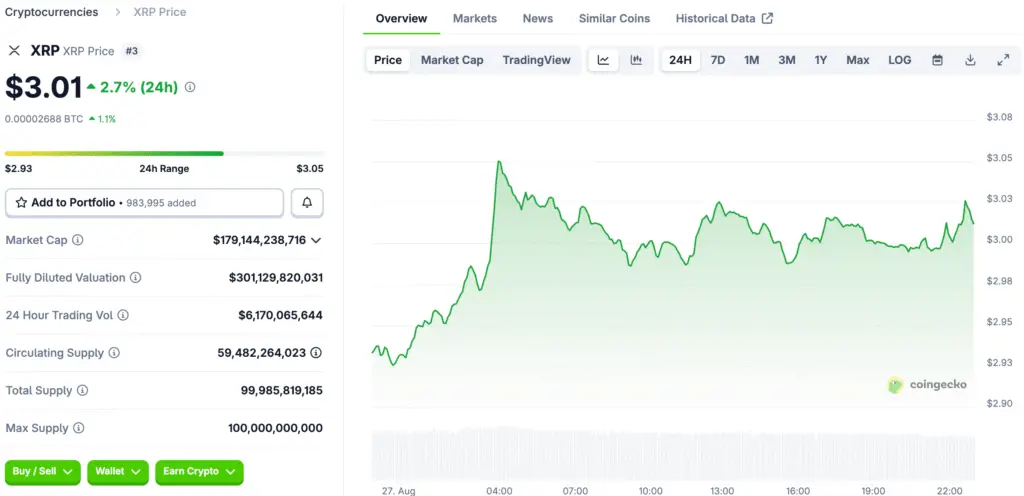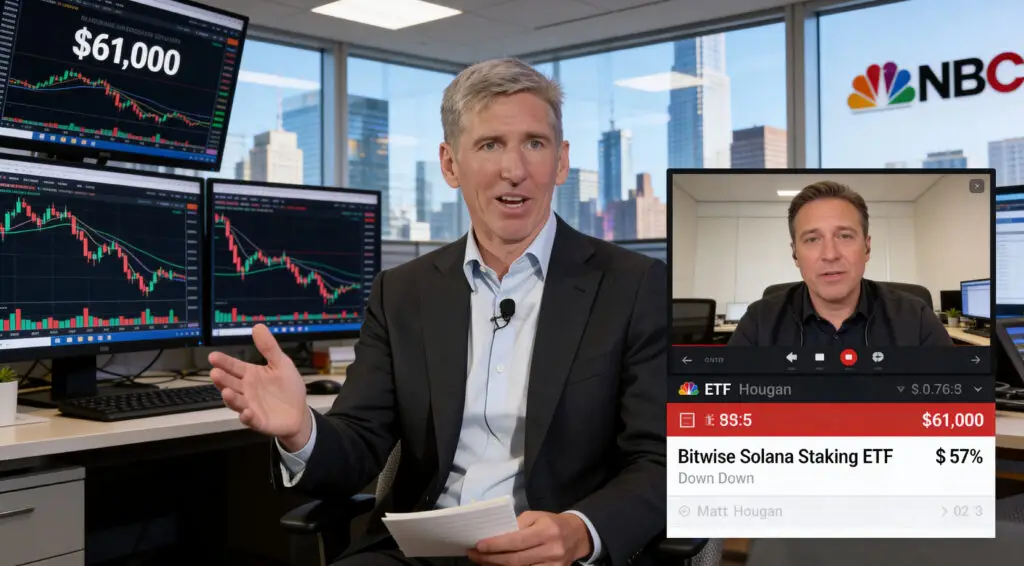Gemini’s Strategic Expansion into Consumer Finance
Cryptocurrency exchange Gemini is making a significant move into consumer finance by introducing a new credit card. This strategic expansion is part of a broader effort to attract more users and deepen its presence in the financial ecosystem. The new XRP Edition credit card, launched in partnership with Ripple and issued by WebBank, is a clear sign that Gemini is diversifying its offerings beyond its core trading platform.
This move also comes as the company prepares for a U.S. initial public offering, or IPO, and is likely aimed at demonstrating a robust and growing consumer business. By offering a credit card that integrates digital assets, Gemini is directly competing with traditional financial institutions and solidifying its place in the modern financial landscape.
Key Features of the New XRP Edition Card
The new XRP Edition credit card, running on the Mastercard network, is designed to incentivize users to earn rewards in the popular cryptocurrency XRP. The card offers a tiered rewards system with no annual fee and no foreign transaction fees. Cardholders can earn a generous 4% back on gas, EV charging, and rideshare services. They also get 3% on dining, 2% on groceries, and 1% on all other purchases.
Furthermore, select merchants offer up to 10% back on qualifying purchases. A key feature of this card is the flexibility it offers. Rewards can be earned in XRP, Bitcoin, Ether, or any of the over 50 other cryptocurrencies offered by Gemini. This flexibility allows users to switch their preferred reward at any time, tailoring the card to their specific investment strategies.

XRP’s Growing Utility and Market Presence
The launch of an XRP-themed credit card is a major milestone for the token and for the broader cryptocurrency market. It signifies a growing acceptance of XRP as a viable asset for consumer-facing financial products. Gemini’s decision to offer a dedicated XRP card, alongside its support for Ripple USD, or RLUSD, as an optional base currency for all spot trading pairs, highlights XRP’s growing utility.
This move is particularly significant given XRP’s recent legal victory against the U.S. Securities and Exchange Commission, or SEC, which provided a level of regulatory clarity that is still lacking for many other digital assets. The card’s availability in all 50 U.S. states and Puerto Rico, combined with the new base currency option, strengthens XRP’s market presence and legitimacy in the United States.
Global Crypto Holdings: The Case of the UAE
Beyond the news of Gemini’s new credit card, there are other significant developments happening globally. Blockchain intelligence platform Arkham has publicly labeled Bitcoin addresses linked to the United Arab Emirates, or UAE, revealing government-linked holdings of nearly $740 million. This makes the UAE the fourth-largest government holder of Bitcoin on the platform.
Unlike countries like the U.S. and U.K., whose holdings are largely derived from asset seizures, the UAE’s BTC reserves are the result of mining operations. This is a crucial distinction that highlights a proactive and strategic approach to cryptocurrency adoption. The UAE’s holdings stem from Citadel Mining, a public company majority-owned by the UAE Royal Group, and its significant mining facility in Abu Dhabi.
Exchange Security After Major Hacks
Another key story in today’s market is the ongoing focus on exchange security. Following a record $1.5 billion hack earlier this year, Bybit co-founder and co-CEO Ben Zhou announced that the exchange has completed a major security overhaul. The exchange has strengthened its hot and cold wallet systems and subjected its reserves to independent audits.
This development is a clear sign that major exchanges are taking security more seriously and that the industry is adapting to the growing threat of cyberattacks. Zhou’s comments that the industry has become stronger as a result of the hack point to a collective effort to improve security standards and rebuild trust with users.
Traditional Finance and Tokenized Stocks
The rise of digital assets has not gone unnoticed by traditional financial institutions, and a recent development highlights the growing tension between the two worlds. The World Federation of Exchanges, or WFE, which represents the world’s largest stock exchanges, has urged regulators to clamp down on tokenized stocks.
The WFE argues that these blockchain-based assets, which mimic traditional stocks without granting shareholder rights, pose a risk to investors and threaten market integrity. This call for a crackdown is a clear signal that traditional finance is beginning to view digital assets as a competitive threat. The debate around tokenized stocks is a key one, as it will determine how traditional assets are represented on the blockchain in the future.
XRP’s Place as a Mainstream Asset
The launch of Gemini’s new XRP credit card is a significant step forward for the consumer-facing side of the crypto market. It not only expands Gemini’s offerings but also solidifies XRP’s place as a mainstream asset. At the same time, developments in global crypto holdings and exchange security show that the industry is maturing and adapting to new challenges.
The ongoing debate around tokenized stocks also highlights the growing influence of digital assets on traditional finance. The day’s events collectively signal a market that is evolving on multiple fronts, with a growing focus on utility, institutional adoption, and security.
Read More: Grayscale Files For XRP ETF Signaling A New Era For Crypto Investment















